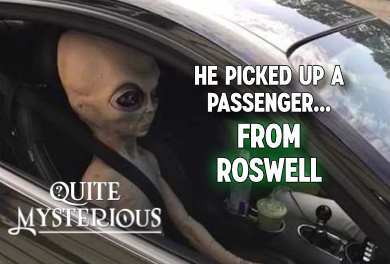Science & Technology
December 16, 2021 · 13 comments
13 comments

Would you take an anti-aging vaccine ? Image Credit: PD - John Keith
In recent years, however, scientists have been making good progress towards understanding exactly how the aging process works, as well as how it might be slowed down or even reversed.
Of particular note is a newly developed, experimental anti-aging vaccine that appears to be capable of slowing down the aging process in mice and can even reverse the signs of age-releated diseases.
According to the National Institute on Aging (NIA), the vaccine works by targeting senescent cells - which are cells that have stopped multiplying due to age but that won't die as they are supposed to.
The older we get, the more these cells accumulate, resulting in various age-related ailments.
While treatments have been developed to remove these cells, a vaccine could potentally be more effective by helping to prevent the build-up of senescent cells in the first place.
Initial trials of the vaccine in mice have proven quite promising, however it remains to be seen whether or not it is safe to administer to humans and whether it will work as well as it does in mice.
"I think the data was extremely strong... I think it's a really good proof-of-principle," said Prof Paul Robbins, associate director of the Institute on the Biology of Aging and Metabolism at the University of Minnesota.
The next step will be to begin human trials while also developing additional types of vaccines that target different parts of the senescent cells.
Who knows, perhaps one day we will all be lining up to receive our vaccine doses - not for coronavirus - but to help us live longer, healthier lives.
Source: Live Science | Comments (13)
Anti-aging vaccine appears to work... in mice
By T.K. RandallDecember 16, 2021 ·
 13 comments
13 comments
Would you take an anti-aging vaccine ? Image Credit: PD - John Keith
Scientists have developed a vaccine that could one day reverse the aging process in humans.
Mankind has been obsessed with gaining immortality for thousands of years, but even despite the incredible advances in science and medicine achieved over the last few centuries, our species still remains just as vulnerable to the aging process as our ancestors were millions of years ago.In recent years, however, scientists have been making good progress towards understanding exactly how the aging process works, as well as how it might be slowed down or even reversed.
Of particular note is a newly developed, experimental anti-aging vaccine that appears to be capable of slowing down the aging process in mice and can even reverse the signs of age-releated diseases.
According to the National Institute on Aging (NIA), the vaccine works by targeting senescent cells - which are cells that have stopped multiplying due to age but that won't die as they are supposed to.
The older we get, the more these cells accumulate, resulting in various age-related ailments.
Initial trials of the vaccine in mice have proven quite promising, however it remains to be seen whether or not it is safe to administer to humans and whether it will work as well as it does in mice.
"I think the data was extremely strong... I think it's a really good proof-of-principle," said Prof Paul Robbins, associate director of the Institute on the Biology of Aging and Metabolism at the University of Minnesota.
The next step will be to begin human trials while also developing additional types of vaccines that target different parts of the senescent cells.
Who knows, perhaps one day we will all be lining up to receive our vaccine doses - not for coronavirus - but to help us live longer, healthier lives.
Source: Live Science | Comments (13)

The Unexplained Mysteries
Book of Weird News
AVAILABLE NOW
Take a walk on the weird side with this compilation of some of the weirdest stories ever to grace the pages of a newspaper.
Click here to learn more

Support us on Patreon
BONUS CONTENTFor less than the cost of a cup of coffee, you can gain access to a wide range of exclusive perks including our popular 'Lost Ghost Stories' series.
Click here to learn more
Ancient Mysteries and Alternative History
United States and the Americas
Spirituality, Religion and Beliefs
Extraterrestrial Life and The UFO Phenomenon
Total Posts: 7,751,509 Topics: 324,002 Members: 203,511
Not a member yet ? Click here to join - registration is free and only takes a moment!
Not a member yet ? Click here to join - registration is free and only takes a moment!



































Please Login or Register to post a comment.